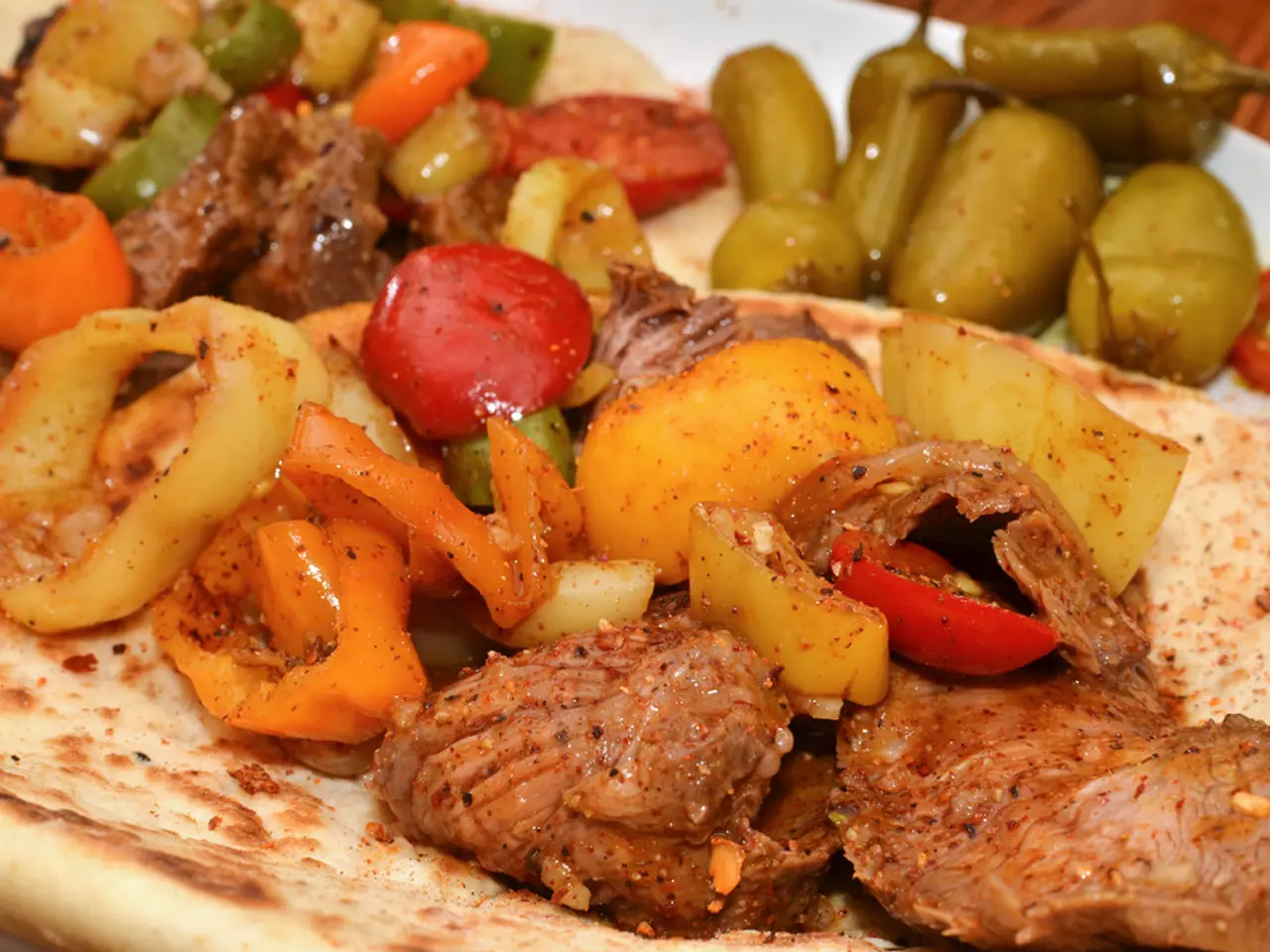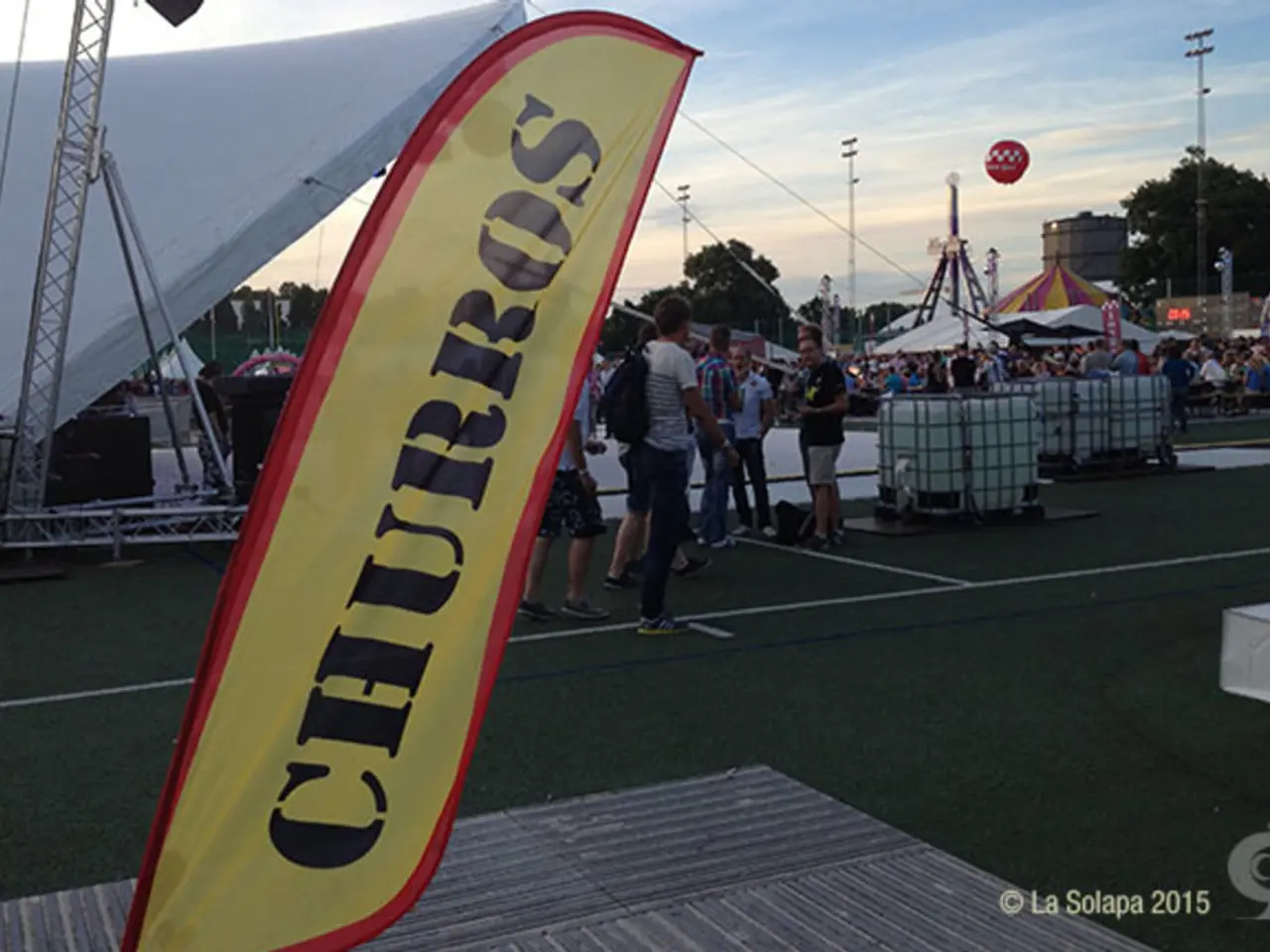Harmful Eats for Hens: Foods You Absolutely Should Avoid Feeding Them
In the world of poultry farming and backyard chicken keeping, it's essential to be aware of the foods that are harmful to our feathered friends. Here, we've compiled a list of the top 10 toxic foods for chickens and the reasons behind their harmful effects.
- Avocado (especially pit and skin)
The fungicidal toxin persin found in avocados can pose a significant threat to chickens, causing heart problems, breathing difficulties, and potentially death, even in small amounts. It's best to keep avocados out of your chickens' diet.
- Raw or dried beans
Raw or dried beans contain phytohemagglutinin, a lectin toxin that can be deadly to chickens. Cooking beans destroys this toxin, but it's safer to avoid feeding them to chickens entirely. Soaking dried beans is not enough to make them safe.
- Chocolate and candy
Chocolate and candy are off-limits for chickens due to theobromine and caffeine, which can affect their heart and nervous system, potentially causing fatal heart issues. Additionally, the sugar and artificial colors in these treats are harmful to chickens as well.
- Green potato skins and sprouts
Green potato skins and sprouts contain solanine, a poison that can cause diarrhea, weakness, and even lead to death if consumed in significant amounts. It's best to avoid feeding your chickens raw potatoes, green skins, and sprouts.
- Rhubarb leaves
Rhubarb leaves contain oxalic acid, which is toxic and can cause serious health issues or death in chickens. Stick to feeding your chickens only the rhubarb stalks.
- Onions
Onions contain compounds that affect blood cells, potentially causing anemia and other health problems. It's best to keep onions out of your chickens' diet.
- Moldy or rotten food
Moldy or rotten food can produce mycotoxins, which can cause paralysis, sickness, or death in chickens. Chickens may not always be able to tell good food from bad, so it's crucial to avoid giving them moldy or rotten food.
- Pine and cedar shavings (used in coop bedding)
Pine and cedar shavings can be harmful to chickens due to abietic acid, terpene hydrocarbons, and aromatic compounds that can damage respiratory and liver function. Dust from these shavings is also carcinogenic, and long-term exposure can cause illness or death.
- Tomato leaves and stems
Tomato leaves and stems contain solanine and tomatine toxins, which are harmful though the tomato fruit itself is generally safe. It's best to avoid feeding your chickens the leaves and stems of tomatoes.
- Raw potato (general caution besides skins and sprouts)
While cooked potatoes in small amounts are safe, raw potatoes contain solanine and should be avoided. It's best to keep raw potatoes out of your chickens' diet entirely.
In conclusion, these foods contain specific toxins (e.g., persin, phytohemagglutinin, theobromine, solanine, mycotoxins) that interfere with chickens' heart, nervous system, respiratory system, blood, or organ function, leading to illness or death. It's safest to avoid these foods entirely in a chicken’s diet. Moldy or spoiled foods introduce mycotoxins that can rapidly cause paralysis or death, emphasizing the importance of fresh, safe feed. Additionally, using pine or cedar shavings for bedding risks respiratory and liver damage due to toxic compounds and dust inhalation.
- To maintain the health and wellness of their pets, it's crucial for chicken owners to be aware that certain food-and-drink items, such as avocado, raw or dried beans, chocolate, green potato skins and sprouts, rhubarb leaves, onions, moldy or rotten food, and raw potato, can cause medical-conditions like heart problems, breathing difficulties, anemia, diarrhea, or even death, due to toxins like persin, phytohemagglutinin, theobromine, solanine, oxalic acid, and mycotoxins.
- In the realm of home-and-garden, it's advisable to steer clear of using pine and cedar shavings as coop bedding, as these can harm chickens by damaging their respiratory and liver function, due to abietic acid, terpene hydrocarbons, and aromatic compounds.
- As part of a chickens' lifestyle, it's essential to ensure they have access to a balanced diet that caters to their nutritional needs, avoiding harmful foods like those mentioned above, while providing them with a safe and comfortable home-and-garden environment.




